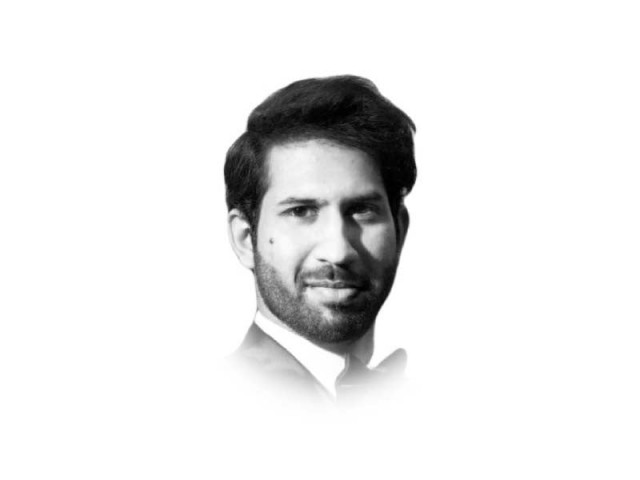Death of curiosity
We must remain curious, ask questions, do the diagnostic work and avoid displacing responsibility on the government

The narrative of the broken system is a myth; the system is not broken. We are broken. A big part of this is because our society and leaders believe they have all the answers. There is zero curiosity to learn more or tolerate different opinions. Everything is black and white. The ‘know-it-all’ mentality stops us from being curious, displacing this responsibility to others. We all act like silent spectators and then complain once the show is over. This dangerous cycle is slowly paralysing our societies.
On my first day at Harvard, Professor Heifetz, a well-renowned professor, stunned me in his first lecture on leadership. He implied that ‘lack of curiosity’ implies you are simply dead, and displacing responsibility is society’s favourite tactic to avoid the hard work of exercising leadership.
Noor Mukadam was kidnapped, beaten and brutally beheaded in the heart of the capital of our country. As her parents plead for justice, many in our communities blamed Mukadam’s ‘lack of morals’ rather than her murderer’s evil intention as the reason for her tragic fate. The murderer’s elitist father even dared to tell his son that he would “handle the mess”.
An honest diagnostic laced with curiosity needs to happen across our communities to understand underlying loyalties and identities permitting these recurring failures within our societies. How have we allowed this permissive context to murder, rape, play moral police and delay justice to exist? How have we allowed the mere perception of the victim’s morals as her public sentence? In the recent Women, Peace and Security Index, a measure of women’s well-being in home, communities and societies, Pakistan is ranked among the 12 worst performing countries.
While the recent Gender Protection Unit is a step in the right direction by the government, it is not enough, and we must continue to be curious about the underlying leadership challenges in our societies. What is stopping us all from renegotiating our outdated and unspeakable loyalties?
Last month, one hundred men brutally and shamefully murdered a Sri Lankan man under the vague banner of blasphemy. A hundred men determined in minutes that the “alleged” act by Priyantha deserved death by lynching. Did the mob think that maybe Priyantha knew nothing about what actions constituted blasphemy? Lack of curiosity and compassion led to the death of an innocent person. For these hundred men, it was black and white. Over 70 people have been murdered with over 1,500 ‘blasphemy’ cases registered in the Islamic Republic of Pakistan in the last three decades.
One hundred men reflect many communities; our leaders and societies must recognise this. Under the pretext of two sentences, one hundred men became the judge, jury and executioner. No helpline, phone calls or changes to the education system, which are reasonable first steps, can fix this. Tackling the recent evil trends in our societies will take time, requiring various iterations of many solutions.
Lack of curiosity and zero diagnostic work has also paralysed Pakistan’s economy. Diagnostic work mandates further reflection into the repeated failures and builds capacity to do better. Pakistan has gone to the IMF 22 times in the last 63 years, while India has gone seven times, the last time in 1993. Recently, IMF approved a loan of $1 billion, post a lengthy negotiation between the government and the IMF. But a recent UNDP report states that $17 billion in subsidies and privileges are leveraged to the elite. Why does this disequilibrium exist? Will re-electing the same folks help us eliminate the pervasive elite capture and rent-seeking behaviour?
On the diplomatic front, religious factions continue to pressure the government and deprive Pakistanis of economic opportunities with certain countries. Yet, many Arab and Muslim nations found a way to partner with those countries. Does UAE have better Muslims than us? Have we asked ourselves who invented the spectrum of a good, better, best Muslim?
I took the leadership class because I was inspired by a huge banner that screamed “champions of curiosity” on the first day outside the Harvard library. Contrary to what our society manages to do with our youth, I did not want my curiosity dead. I revived it because I could not make the same mistakes. I rekindled it because I want to thrive and not merely survive.
Our societies can also become “champions of curiosity”. We must remain curious, ask questions, do the diagnostic work and avoid displacing responsibility on the government. By not doing the above, we give up the opportunity to exercise leadership and thrive. Our system is broken because we, the people, want it that way. Our societies draw up the illusions of a broken system to make themselves feel better but let’s not forget that we are all players of this system. Noor, Priyantha, and our economy are victims of our silence and our lack of curiosity as individuals, communities, and as a nation.
Published in The Express Tribune, January 13th, 2022.
Like Opinion & Editorial on Facebook, follow @ETOpEd on Twitter to receive all updates on all our daily pieces.

















COMMENTS
Comments are moderated and generally will be posted if they are on-topic and not abusive.
For more information, please see our Comments FAQ